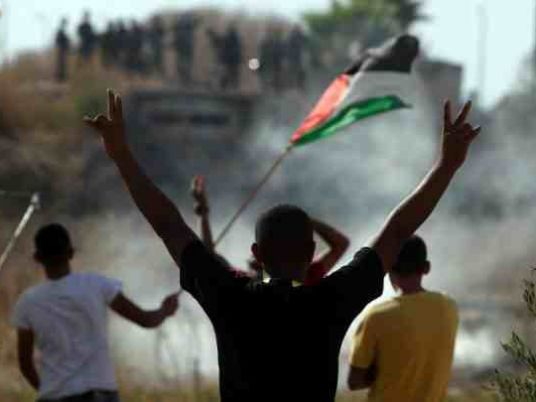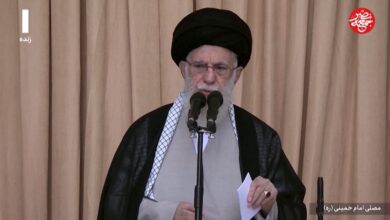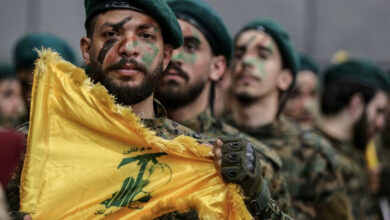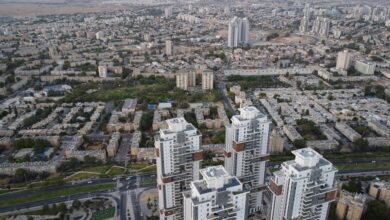
The Israeli military says forces shot a Palestinian after he allegedly tried to stab a soldier in the West Bank.
The military says the Palestinian drew a knife at an army post before forces shot him. The Palestinian's condition was not immediately known.
Wednesday's incident took place in Hebron, a West Bank city that is a frequent flashpoint of violence, where hundreds of Jewish settlers live in heavily guarded enclaves amid tens of thousands of Palestinians. The city has seen near-daily violence in recent days.
The incident is the latest in a five-week wave of unrest that has killed 55 Palestinians, 35 of them identified by Israel as attackers. Eleven Israelis have been killed.
The United Nations warned Wednesday that a deadly surge in violence between Israelis and Palestinians was headed toward "catastrophe" as fresh protests were expected in the volatile West Bank.
A wave of anger has gripped the city of Hebron where hundreds demonstrated Tuesday night to demand the return of "the bodies of martyrs" — youths behind a wave of unrest that has seen nine Israelis killed in knife attacks and shootings.
Withholding the bodies of attackers is one of a series of measures approved by the Israeli government to try to dissuade the attacks against Jews, which began in early October as tensions over the Al-Aqsa mosque compound in Jerusalem boiled over.
UN High Commissioner for Human Rights Zeid Ra'ad Al Hussein warned that the latest flare-up in violence in the six-decade-old conflict was "dangerous in the extreme".
"The violence between Palestinians and the Israelis will draw us ever closer to a catastrophe if not stopped immediately," he said during a meeting of the UN Human Rights Council in Geneva.
Also at the meeting, Palestinian president Mahmoud Abbas called on the United Nations, "more urgently than any time before, to set up a special regime for international protection for the Palestinian people, immediately and urgently."
He accused Israel of carrying out "extrajudicial killings of defenceless Palestinian civilians."
Bodies withheld
The West Bank city of Hebron has been a hotbed of the recent unrest, with near-daily clashes with Israeli police where protesters are often left with bullet wounds or dead.
Many of the youths behind the attacks are also from the city.
Palestinian organisations say the bodies of 25 attackers have not been returned to families.
They are among 59 Palestinians and one Israeli Arab killed since October 1. Palestinian medics say some 2,000 Palestinians have been injured since the outbreak of violence.
"The terrorist's family makes his funeral a show of support for terrorism and incitation to murder and we cannot allow it," Internal Security Minister Gilad Erdan said in mid-October when the measure was announced.
He said the bodies would be buried in cemeteries reserved for attackers, "as has been done in the past."
The move infuriates Muslims who have strict religious rules on how burials should take place.
The Israelis "want to put pressure on us … they know that it is more than a red line for us: they execute them and then they try to crush our dignity," said Jihad Irshaid, the father of 17-year-old Dania who was shot dead on Sunday while allegedly trying to stab soldiers.
Amnesty International on Tuesday accused Israel of a series of "unlawful killings of Palestinians using intentional lethal force without justification" in east Jerusalem and the West Bank.
'Inciting and provoking'
The latest violence erupted in September with clashes over access to the Al-Aqsa mosque compound.
Tensions rose over a long-running Palestinian fear that Israelis are planning to change the rules governing the site that is sacred to both Muslims and Jews, and lies in annexed east Jerusalem.
Israeli Prime Minister Benjamin Netanyahu has repeatedly denied seeking to allow Jews to pray at the compound, which they refer to as the Temple Mount.
Only Muslims are allowed to pray within the compound, while non-Muslims can visit but not pray there.
After an intense diplomatic drive to defuse the tensions, Israel and Jordan — the custodian of the holy site — agreed Saturday to allow surveillance cameras at the compound, but this has run into trouble as the two lock horns over the installation.
Further straining the situation, an Israeli Arab lawmaker on Wednesday visited the mosque compound, defying a ban by Netanyahu on visits by lawmakers and government ministers, to avoid provoking Muslim anger.
"Israel does not control who is banned from entering the mosque, and continues to change the status quo," Basel Ghattas, a Christian member of the Israeli parliament for the Arab Joint List coalition, wrote on his Facebook account.
Erdan, the internal security minister, slammed Ghattas's visit.
"The vile provocation of the deputy Basel Ghattas only highlights his inadequacy as a representative of the public. His initiative could incite violence and lead to death," he wrote on Twitter.
On Tuesday, Deputy Foreign Minister Tzipi Hotovely said it was her "dream to see the Israeli flag flying" over the holy site, prompting Netanyahu to order government ministers to follow the party line.




